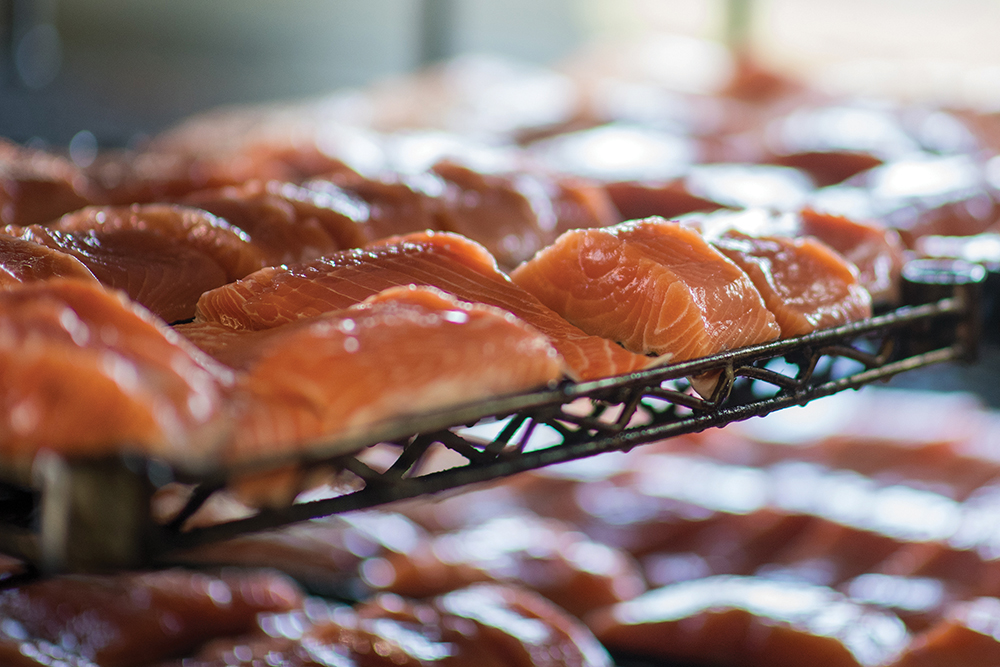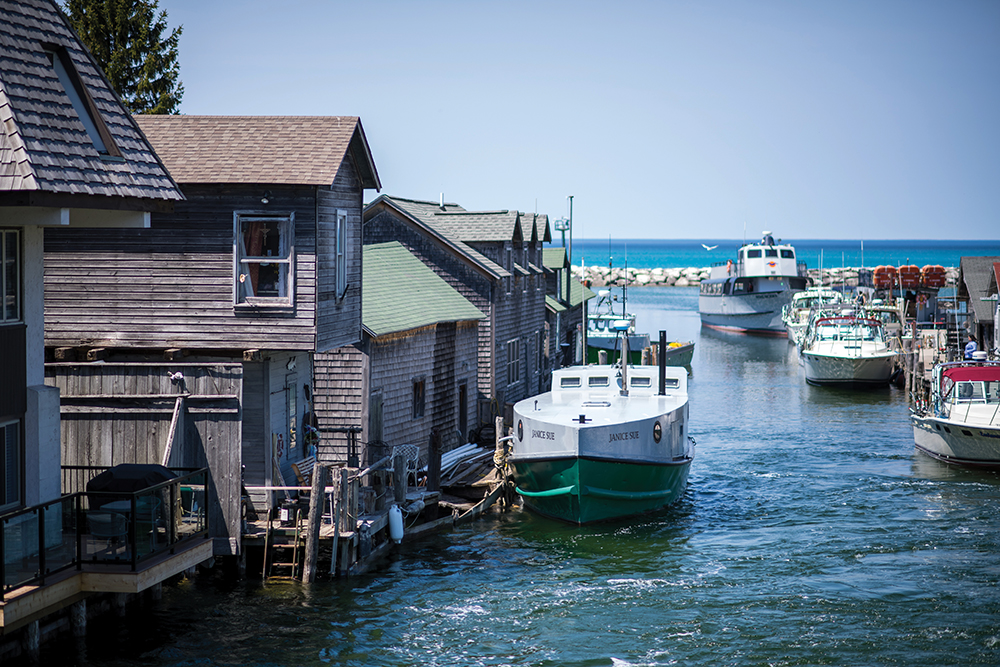
Carlson’s Fishery: Leaving its Mark on the Local Economy and Michigan’s Waters
As an undergraduate student doing research at the U-M Biological Station, Nels Carlson (MS ’05) was fascinated by what he saw and learned from the aquatic invertebrates he caught, in the water samples he collected and the data he analyzed.
The waters and what lives in them, especially the fish, were something Carlson studied informally his whole life. It’s a given when the generations-old family business is Carlson’s Fishery, a popular tourist draw in historic Fishtown on the Leland River.
Today, the SEAS graduate is using lessons from his student research days to add to and enhance the work he does as the fifth-generation owner of the fishery—a cog in the community, a contributor to the local and state economies and a player in historic, maritime preservation in Northern Michigan.
Carlson’s is also a critical source of information for the state of Michigan, U-M and other universities and researchers working to protect and improve the health of Michigan’s waters and fish populations.
“Everything I learned at U-M has played a role in what I currently do,” Carlson says. “I draw on it so frequently it’s become second nature to me. Many things we learn, we forget. But when you put what you’ve learned into practice in your daily life, it becomes something you draw on without even realizing it.”

“Everything I learned at U-M has played a role in what I currently do. I draw on it so frequently it’s become second nature to me.”
It was his studies as a curious college student who loved the water and Northern Michigan that “gave me a great deal of insight as to how the inland lakes and Great Lakes ecosystems work and their importance in shaping our current way of life, particularly how my family emigrated to the area and sustained our way of life since the 1800s,” he says. “In one way or another, my family has been closely tied to the ecosystem, biology and ecology of the area and its health.”
What the fishery’s visitors—locals, annual summer tourists and occasional one-time customers—find at the quaint 129-year-old business goes beyond the popular whitefish pate, the weathered smokehouses and the thousands of pounds of fish moving across store counters each week.
Behind the scenes, the fishery with its shop, dock and grounds seemingly unchanged since the 1800s, acts as a harbinger of the health of Michigan’s waters and inhabitants. Being a source of information on water quality and invasive species is a ripple effect of an operation that relies on the lakes.

Carlson’s is regularly called on by Michigan Sea Grant, the Michigan Department of Natural Resources, local conservation officers and various researchers to collect or share information. Often, the fishery saves any lamprey it brings in. Lamprey is an invasive species that damages lakes and native marine life. The lamprey is used to glean information that might lead to solutions to control invasive species.
“Being involved in research and field studies gives you a huge leg up in understanding how the state and other organizations sample, collect and analyze data. It also gives you a sense of what to pay attention to when observing the fish populations as well as the general ecology of the lake,” Carlson says.
Carlson and a business partner bought the fishery from his uncle in 2012 in an effort to save it and keep the business in the family. He’s working hard to keep it thriving for the next generation as he also updates it to fit today’s needs.
“Fishtown and the fishery have always felt like home to me,” Carlson says. “Continuing a tradition and a sense of community and heritage, that makes me very proud.”
This article originally appeared on the U-M Impact website. It is reprinted with permission.

